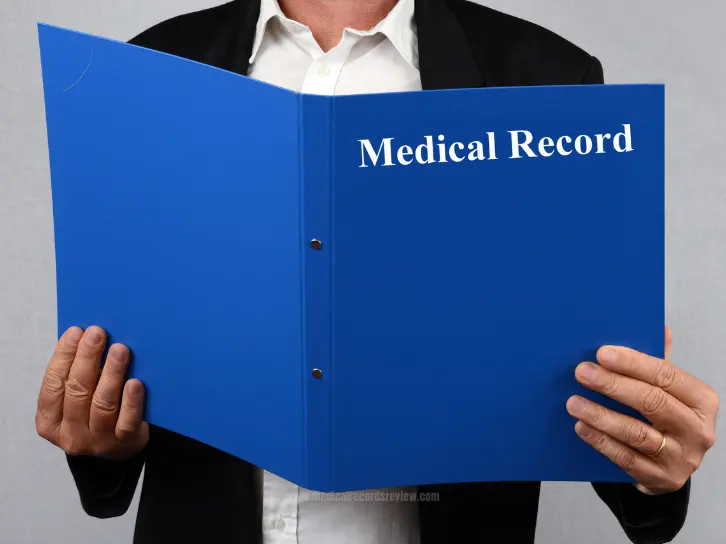Introduction
In the realm of legal practice, particularly in cases involving personal injury, medical malpractice, or disability claims, attorneys often find themselves dealing with sensitive medical records. In the United States, the Health Insurance Portability and Accountability Act (HIPAA) of 1996 provides a law-oriented framework to protect sensitive health data. For attorneys engaged in medical records review, understanding and maintaining HIPAA compliance is not just a legal obligation, it’s a cornerstone of ethical practice. This article identifies how compliance with HIPAA is understood against the background of medical records review for attorneys.

Understanding HIPAA in the Legal Context:
The main aim of HIPAA regulations is the safeguarding of medical records and proprietary health information of individuals. While healthcare providers are the primary focus of HIPAA, attorneys who handle protected health information (PHI) must also comply with its regulations.
Key HIPAA Rules for Attorneys:
- Privacy Rule: Protects privacy of individuals’ records, establishes standards for the protection of medical records and other health records of individuals at a national level.
- Security Rule: Establishes physical and technical safeguards for the protection of PHI in electronic form.
- Enforcement Rule: Foresees the practical implementation of the law and the effects and consequences of failure to comply with HIPAA regulations.
The Role of Attorneys as Business Associates:
Under HIPAA, attorneys who receive PHI to provide legal services to a covered entity (like a hospital or healthcare provider) are considered “business associates.” This classification comes with certain obligations:
- Signing a Business Associate Agreement (BAA)
- Implementing appropriate safeguards to protect PHI
- Reporting any data breaches to the covered entity
Strategies for Enhancing Compliance with HIPAA during Medical Records Reviews:
a) Secure Access and Authentication:
- Implement policies that prevent weak passwords
- Use multi-factor authentication for accessing electronic records
- Keep records of who and which files were opened by whom and at what time
b) Minimal Necessary Standard:
- Only access and review portions of medical records relevant to the case
- Train staff to understand and apply this standard consistently
c) Proper Authorization and Consent:
- Make sure that permission has been gotten from patients to access their health records.
- Ensure that any authorizations obtained are active and assist to support the documentation with regards to the reason of why the information is needed.
d) Data Encryption and Security:
- Use encryption for all electronic PHI, both in storage and transmission
- Safe file exchanges for use with other attorneys or experts should be put in place to enhance privacy.
e) Physical Safeguards:
- Secure physical copies of medical records in locked cabinets
- Consider physical controls like clean desk policies as an additional measure against unauthorized access.
f) Employee Training:
- Schedule and conduct ongoing HIPAA training for all staff members
- Help everyone know their responsibilities towards adherence
g) Breach Response Plan:
- Develop and maintain a comprehensive plan for responding to potential data breaches
- Include steps for notification, mitigation, and prevention of future incidents
Challenges in Digital Age Medical Records Review:
As healthcare records become more and more digitised, new issues arise for attorneys in respect of HIPAA compliance:
- Cloud Storage: Make sure that any cloud storage used has sufficient legal protection against violation of HIPAA regulations
- Remote Work: Implement policies for secure access and handling of PHI when working remotely
- Telemedicine Records: Be familiar with the unique aspects of telemedicine encounters
Working with Expert Witnesses:
Before engaging with doctors, attorneys have to make sure that all interactions comply with HIPAA rules not only internally but outside as well:
- Do not provide unnecessary information to the experts
- Make sure that Business Associate Agreements are signed by the experts
- Do not share and discuss the medical records inappropriately
HIPAA Compliance in Discovery and Litigation:
During the discovery process and in court proceedings, attorneys must balance HIPAA compliance with legal obligations:
- Use protective orders to safeguard PHI during litigation
- Redact unnecessary personal information from court filings
- Be careful when discussing patients and other issues in an open court due to the sensitivity of the information
Technological Solutions for HIPAA Compliance:
Leverage technology to enhance HIPAA compliance efforts:
- Case management system with in-built HIPAA compliant features
- Secure client portals for information exchange
- Automated audit logs and access logs
Regular Audits and Assessments:
Maintain ongoing vigilance in HIPAA compliance:
- Periodic internal assessment of HIPAA policies and procedures for all stakeholders
- Consider external HIPAA compliance assessments
- Stay updated on changes to HIPAA regulations and adjust practices accordingly
Consequences of Non-Compliance:
Factors explaining why compliance with HIPAA requirements is important:
- Civil penalties ranging from $100 to $50,000 per violation
- Criminal penalties for willful neglect, including possible imprisonment
- Loss of reputation as well as loss of confidence from clients

Conclusion:
Medical attorneys specializing in the review of medical records have the duty of ensuring that all HIPAA regulations are complied with all the time, the attorneys need to be alert, keep their eyes open and act wherever necessary. With the deployment of well-developed security mechanisms, enactment of regulatory frameworks, and enhancement of the practice culture, advocates in the present age will be able to conduct the medical record review process satisfactorily without jeopardising the privacy of the patients and information systems. It is important not only to comply with the law in order to avoid such catastrophic consequences but also due to the active HIPAA policies positively impact the clients’ reliance on such attorneys and their professional ethics.



